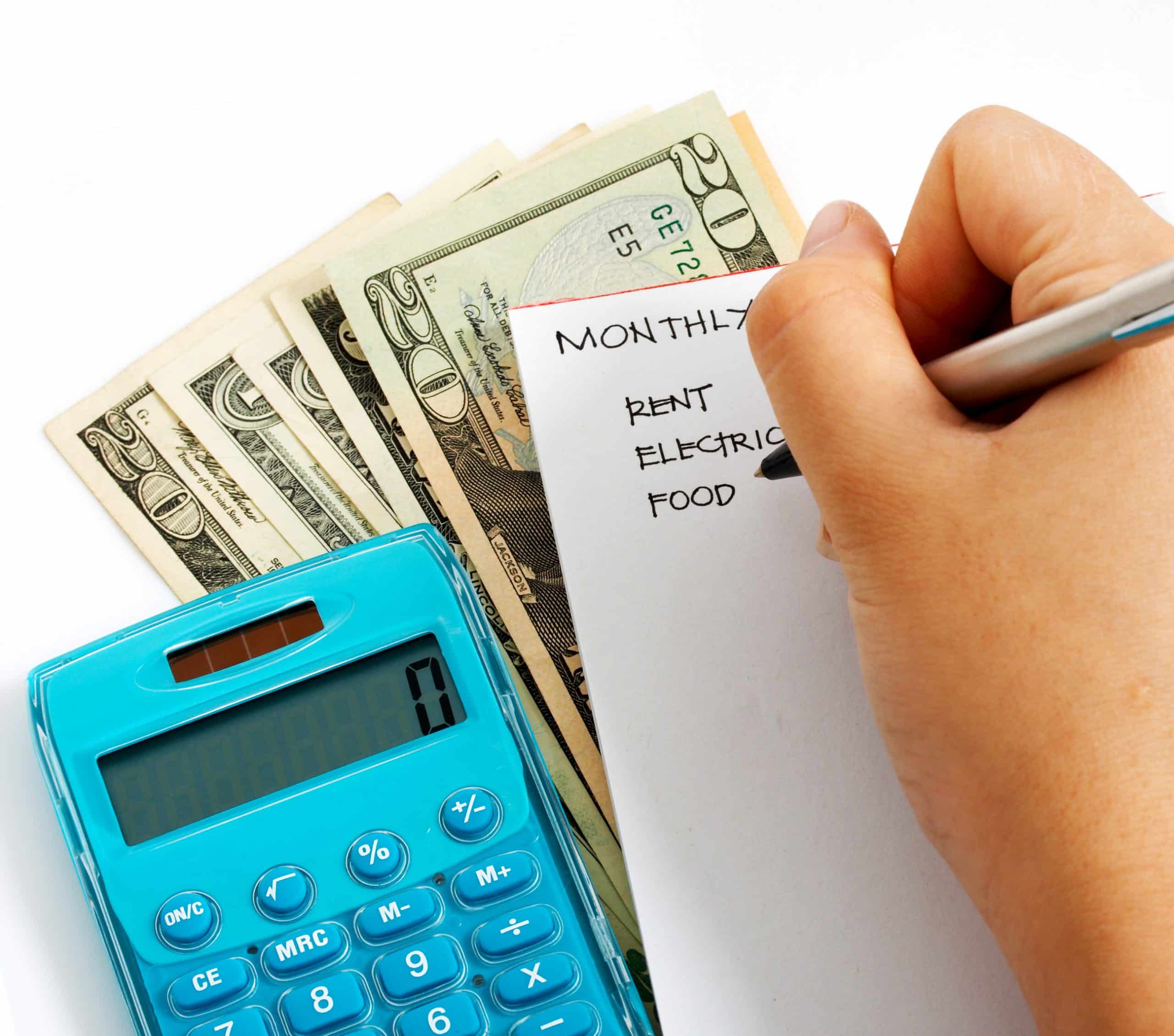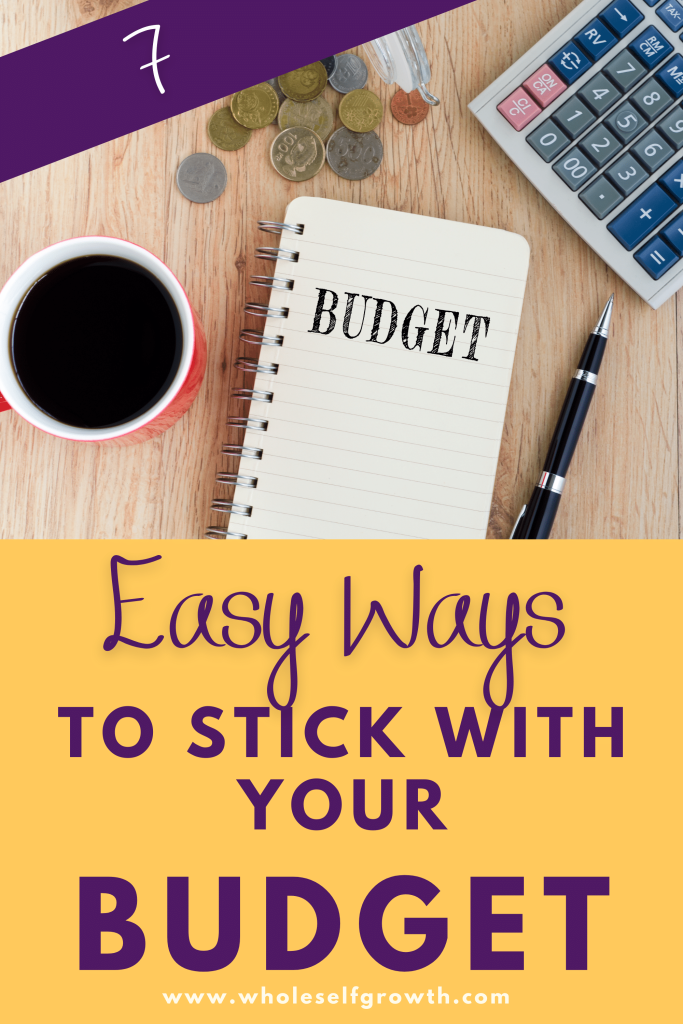
7 Ways to Stick To Your Budget
Sticking with your budget can be absolutely exhausting. You’re pinching pennies, but now what? Have you started enjoying the fruits of your labor yet? If you’re working hard to stick to your budget but aren’t getting to have any fun, you might be running on fumes. These tips will help you stick with your budget with a smile on your face!
Don’t have a budget that works for you quite yet? Check out my tips for getting started with a budget.
7 Ways to Stick To Your Budget
1. Do what works for you. Is your budget too detailed? Is it too vague? The best part about creating a budget is that it’s not set in stone! It’s a flexible and fluid document that is supposed to change over time. You can change it at any time, and you can do what works best for you and your family. If it is no longer working, change it up. It’s okay to make it more detailed (or less detailed) if you need to. Tighten it up a bit if you find you’re spending more than you need to. Loosen up a bit if you’re getting silver hair from analyzing every line of your budget.
2. Be flexible. Sometimes extra expenses come up, so you need to be flexible or you’ll get burnt out. Does your budget include some wiggle room for these extras? If it really doesn’t, you should figure out how to include more “savings” in your budget, so that when the car breaks or the kids need a payment for school sports, you’ll have the extra cash.
3. Work in some rewards. Whether it’s a new pair of shoes, a movie with the family, or a summer vacation, rewards are necessary to stay on track. If you don’t have enough room in the budget for bigger purchases, it’s easy to rent a movie from Redbox and get some $1 popcorn from the grocery store. Family movie night: success!
Other rewards for sticking to your budget: ONE fancy coffee drink, an at home self care day, or a trip to a local state park.
More Specific Ways to Stick To Your Budget
4. Pack a lunch. If you’re a family of five and each parent is working, lunch expenses for two can add up quickly. Add in kids and school lunches and your budget can easily spiral out of control! Packing similar lunches for everyone can save time and money. Doing this will give you a little wiggle room for when you want to buy that coffee or lunch out once in a while. Little rewards, remember?

Need lunch packing ideas? Keep it simple! When I’m trying to reduce spending, lunch is one of the first places that I can drastically recduce cost. Remember that there are two other meals in the day that can carry more nutritional value, and consider low cost lunch options like PBJ sandwiches, canned Soup (I get it when it’s on sale 10 for $10 at my local grocery store), or crackers and cheese. It’s possible that you could save hundreds of dollars each month by skipping lunch takeout. Then you can use that money for other parts of your budget instead.
5. Cut back on fluff. It’s tough to look at the budget and see we’re spending $200 on cell phones, $150 on cable and internet, and $300 on eating out. While most of us need cell phones and the internet, cable is definitely fluff! It can be replaced with Netflix and Hulu for a portion of the cost. Cut back on your cell phone bills, too. You don’t need to have the newest and greatest phone on the market (those usually come along with payments).
I almost always use my cell phones until they are no longer functional. When I need to replace my phone, I buy used. Sites like Gazelle.com or eBay are great places to look for refurbished phones and other electronics. Because Gazelle tests all of it’s phones, I feel comfortable buying from them. I recently bought an iPhone7 for my daughter for under $200, and I have no monthly payment plan! Buying used means I have a one time cost, and it’s doable within my budget.
6. Have fun with it. Pinching the purse strings doesn’t have to be painful. Save money by making your own household cleaners, shampoo, skin cleansers, and lotions. YouTube and Pinterest are amazing (free) resources to make this happen. This video from Clean My Space has some great recipes that will save you money and reduce the amount of chemicals you use in your home.
7. Scrap it all. If it gets too overwhelming, just start over! Take out a fresh piece of paper (or spreadsheet) and write down your income and expenses. Then, figure out what’s a necessity and what’s not, and go from there. Use the information in this post if you forgot how to start a fresh budget. It’s not hard!
What has helped you stick with your budget? Leave a comment and let us know! Pin these tips to save them or share them!




